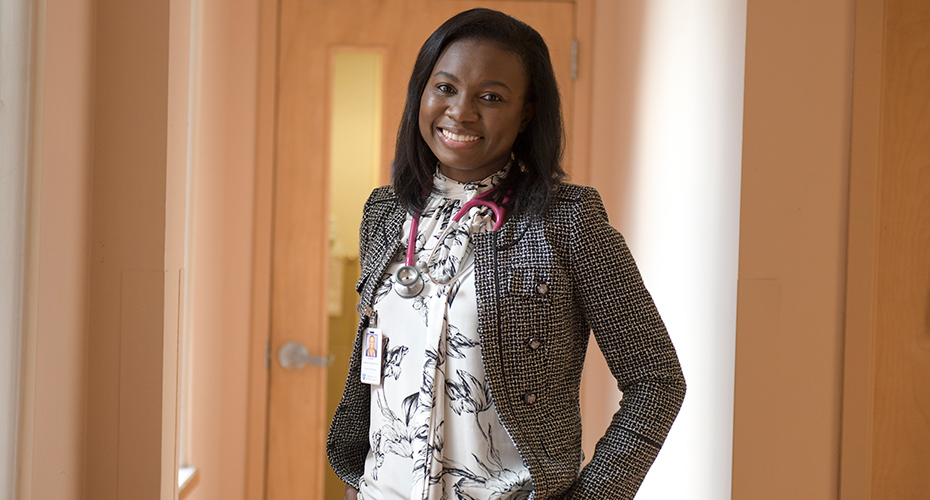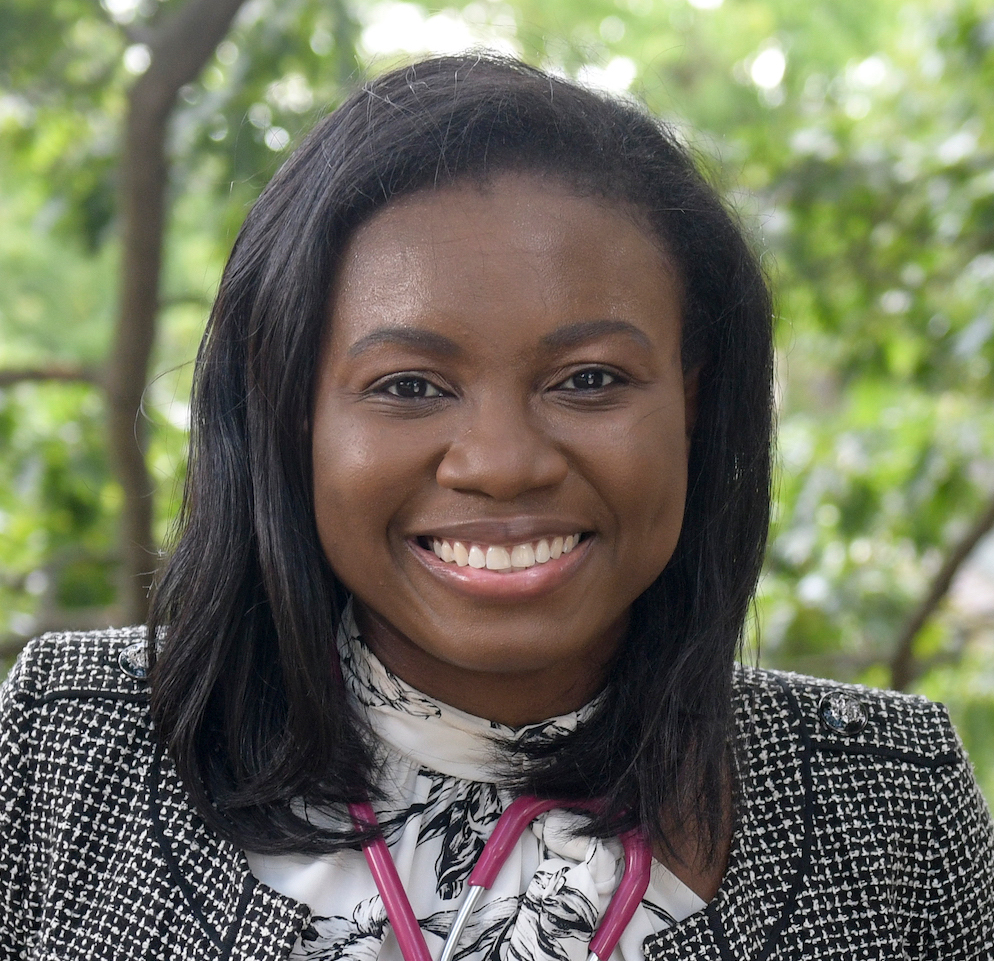Sep 15, 2022
Finding strength in vulnerability
Coverage is proud to publish columns featuring the perspectives of Black women physicians who belong to the Diva Docs network in Greater Boston. Today, Dr. Aderonke Bamgbose Pederson — psychiatrist, director of research equity in the Clinical Trials Network and Institute at MGH, and an assistant professor of psychiatry at Harvard Medical School — shares her thoughts with Dr. Philomena Asante, leader of Diva Docs Boston, founder of the Diva Docs Black Women MD Network and creator of the award-winning Diva Docs series for Coverage.
I grew up a Nigerian immigrant, the only girl in a family with three brothers, watching my mom live the stereotype of the strong Black woman.
She didn’t have a choice. She had four kids by the time my dad passed away. She was a new immigrant in a new country, and there was no room to pay attention to her health, and there was no easy access to healthcare.
By the time she got help, still trying to work and care for her family, she had Stage 4 lung cancer that had spread to her bones.
That was a lesson I’m still learning every day. The cost of being “the strong Black woman” hurts us, it hurts our families, and sometimes we can’t help it, because food needs to go on the table, and money needs to be made.
If we’re going to achieve equity in healthcare, one of the things we have to fight for is the kind of access to care that allows us to be human rather than superhuman
I lived out a particular kind of stereotype of the strong Black woman too. My siblings and I were orphaned by the time I was 17. I had a younger brother who was 12, so I turned into a mom early on.
When I got older, part of my psychological wellbeing had to do with stepping away from that and acknowledging that I lost part of my childhood. There’s no point trying to pick up pieces from the past, but there’s always a future.
Choosing to heal
I always knew I wanted a career that would empower me to make a difference. And I found it as an undergrad, when I realized becoming a physician would allow me to give people something very tangible: better healthcare, a better quality of life, better opportunities.
Psychiatry was not my first choice. Coming from a Nigerian immigrant background, I heard, “Why would you do that? That’s not real medicine.” Or, “How is that really going to help people? Why don’t you just pray about it if you’re feeling down?”
But I appreciated psychiatry as I started to take courses in medical school, and during my rotations, where I saw its impact firsthand. I liked the dynamic aspect, that we have to tailor and think holistically about our treatment options and what we’re giving each patient. I liked the fact that it was an evolving field.
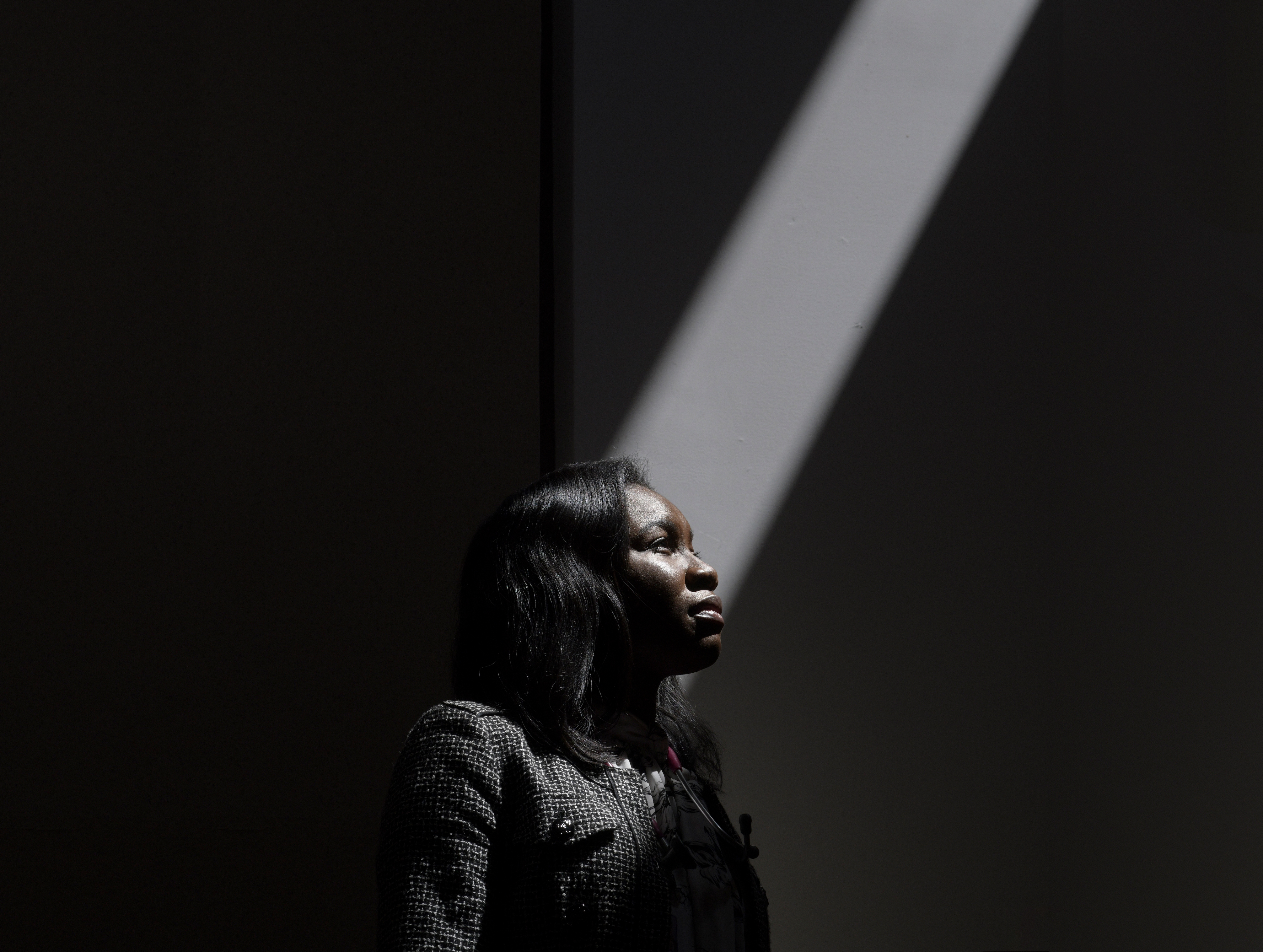
I found a path as a physician-scientist, asking big questions, distilling them into achievable research goals, and translating findings into practical ways to improve health in a community.
My focus is mental health stigma. Across the globe, we see differences in how mental health is viewed versus physical health. Patients with diabetes or cancer, for example, are not typically blamed for their illnesses, whereas patients struggling with bipolar disorder, anxiety or schizophrenia often hear: “Well, why don’t you pull yourself up by your own bootstraps, why don’t you get over it? You just need to work harder and be stronger.” Or psychiatric patients may be viewed as dangerous, despite years of research finding people with mental illness are more likely to be victims of crime than to perpetrate crime.
I observed stigma at a granular level in my interactions with patients on the wards, and I also saw it on a global scale: the way we approach mental health has a huge disconnect from the way we approach our physical wellbeing. Yet our mental wellbeing can so greatly impact our physical wellbeing, including raising risks for illnesses such as diabetes, heart disease and stroke.
How do we know when we need help?
Everyone is different, but there are common red flags.
- Changes in sleep patterns such as difficulty sleeping, or oversleeping
- Changes in appetite, or a lack of interest in food
- Losing interest in people and activities
- Feeling distracted
- Withdrawing from socializing
- Focusing on negative thoughts
It’s important to seek help early, because as depression or anxiety or other mental health challenges worsen, we may stop noticing how much we’re being affected. Having someone to check in with regularly, whether it’s weekly or monthly – your PCP or a therapist – can be very helpful.
Depending on your needs, you may see a psychiatrist who can provide medication or other treatment, a psychologist or social worker for therapy, or a psychiatric nurse practitioner, who also can prescribe medication and provide counseling.
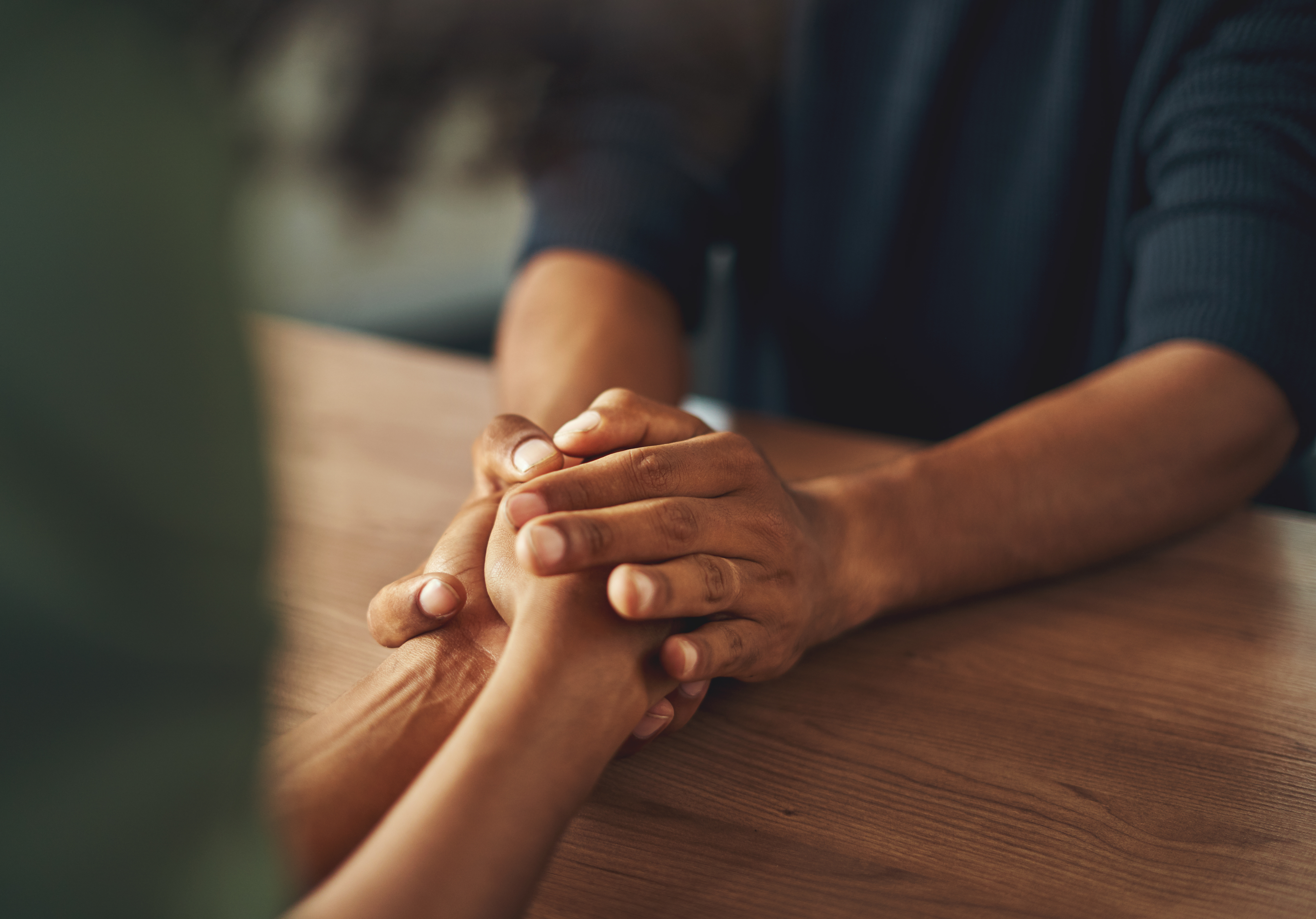
How can we help a loved one who is struggling?
Vulnerability helps build a culture of safety. Rather than saying “you need to go and get some help,” I might approach a friend or family member and say, “I remember when I was struggling, and I remember how it was helpful for me to seek therapy.” By being vulnerable and sharing, we give other people permission to be vulnerable and share.
We use the word “resiliency” a lot in mental health care, and I think we overuse it, particularly for the Black community. It’s a way to say: “You can handle pain and suffering.” There are studies that show people perceive our pain perception in a distorted way, a belief that as Black people we don’t feel pain, and as a result we don’t get the treatment we need.
We need to be conscious of this. “Am I trying to be so resilient that I’m not even allowing myself to take stock of where I might need support?” We can help our loved ones think about that as well.
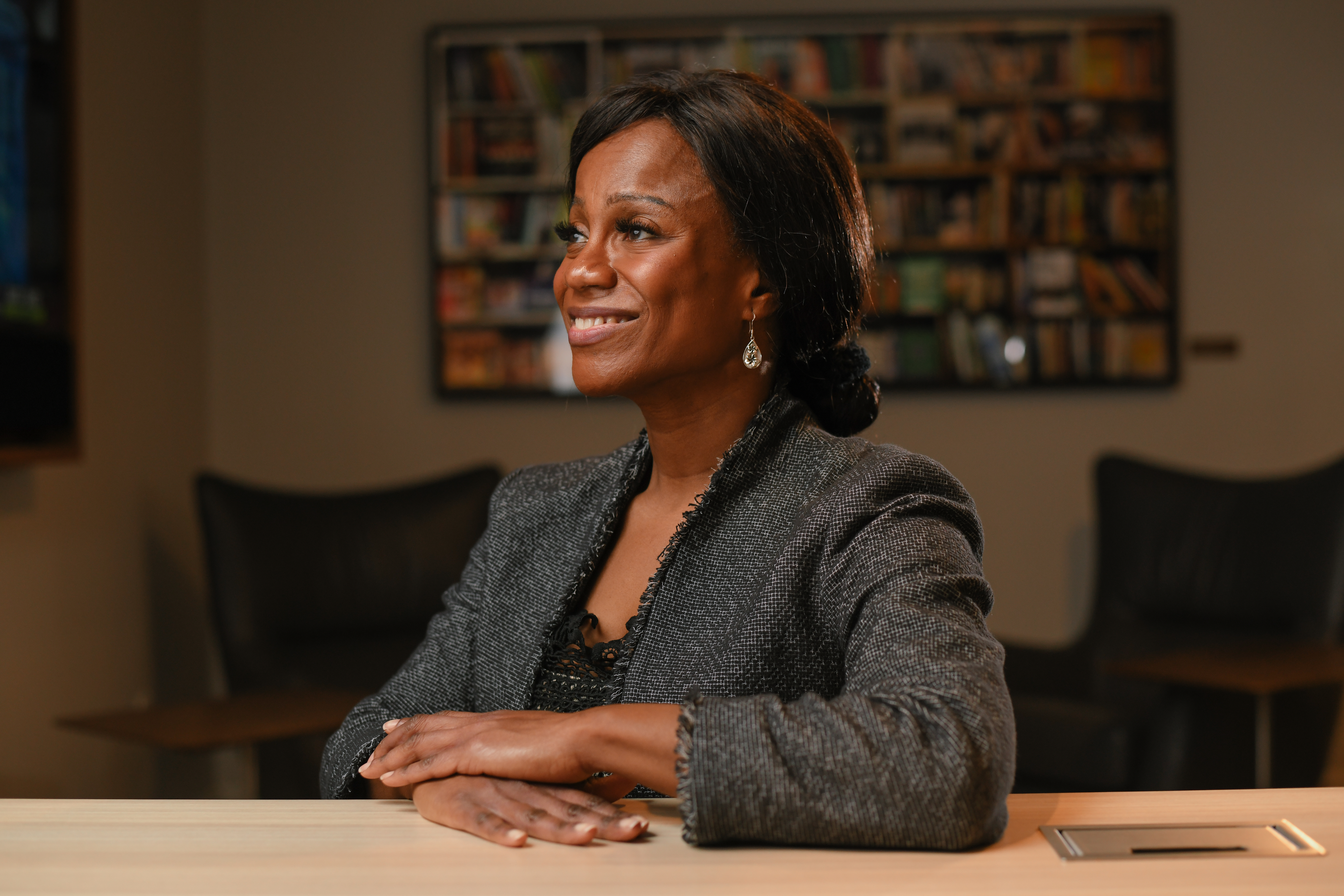
Roots of health disparities
We see inequities in access due to historical and contemporary injustices when it comes to healthcare, including mental healthcare. The American Psychiatric Association and the American Psychological Association have acknowledged and apologized for injustices perpetuated on certain communities, including the Black community in our not-too-remote past. We have a long way to go in correcting these injustices.
We also see a lack of racial and ethnic diversity in the mental health workforce.
And we see stigma – “I don’t want to be looked at as someone who is seeking mental healthcare.”
I can’t fix the access issue. And I can’t fix the lack of diversity in our profession. But one thing I can help fix is letting the stigma of mental illness rob us of getting the care that we need. If we’re going to be stopped from getting care, let it not be because we imposed stigma on ourselves.
We need to be able to wrestle with our own biases and stigmas towards mental healthcare, so that we can break the barriers that are within our power to break, and get help, and create an environment that allows the generations that come after us to get the help that they deserve.
A right to be cared for
The idea of the strong Black man or Black woman has sometimes been weaponized against us. Sometimes “resiliency” is used to indicate that we don’t need or deserve the kind of health care that other communities get. Such biases can be exacerbated when a physician is exhausted or burnt out. Like members of well-served communities, we deserve doctors who go out of their way to figure out how to support us and help us.
As Black people, part of overcoming mental health stigma means accepting it’s ok to not always be resilient, to not always be a strong Black man or woman. We can allow ourselves to cry or be weak. Otherwise, we are robbing ourselves of the freedom and the right to be cared for. We lose the right to heal, to be cared for.
We are strong, but part of our strength is that we claim what our ancestors fought for: access to the same care that everyone else has access to
That includes the right to care for ourselves.
The role of clinicians
Systemic and structural racism and discrimination influence our behavior as clinicians, and becoming aware of our own implicit and explicit biases is important. There are tools that can help us examine bias, but it is a lifelong process.
It’s important as healthcare professionals to be self-reflective and ask ourselves hard questions: “What kind of energy and time do I provide patients who look like me, versus others? Do I assume a person who comes from an underserved community doesn’t need as much help because they are used to suffering?”
Unconscious biases influence our prescribing practices, they influence whether we refer people to specialists or to additional help, they influence the energy we put into our interactions. They contribute to health disparities.
As doctors, to fulfill our Hippocratic oath, we must overcome such biases, and fight for full access to care for all our patients
PHOTOS BY FAITH NINIVAGGI
